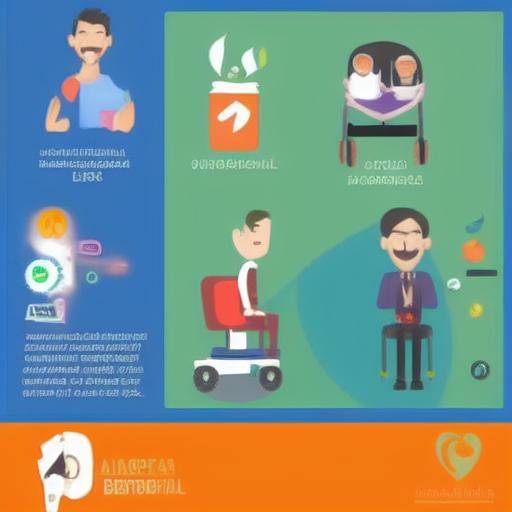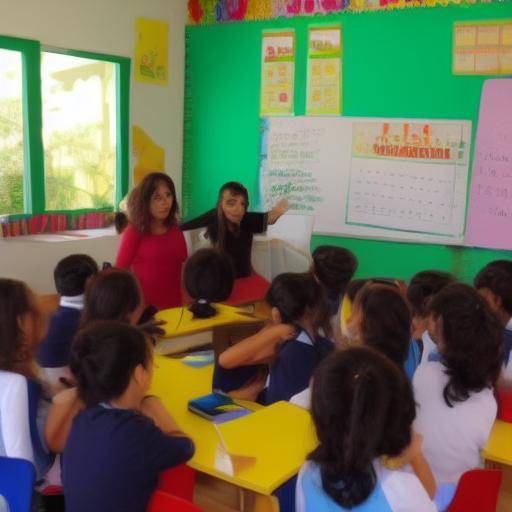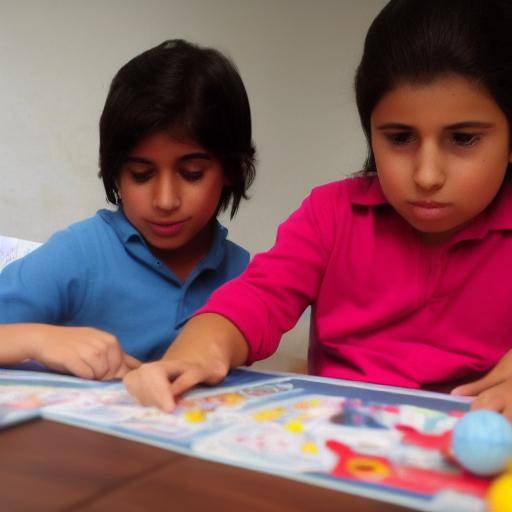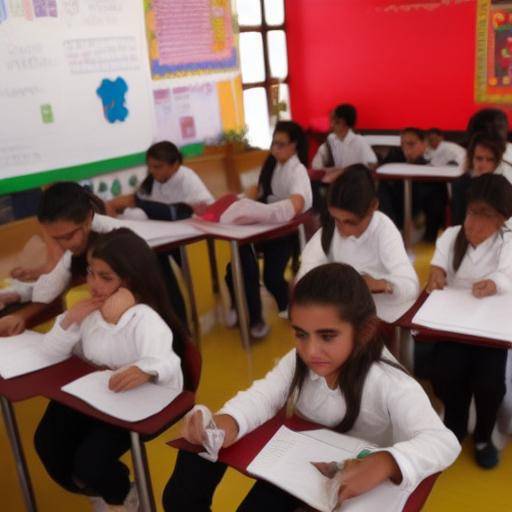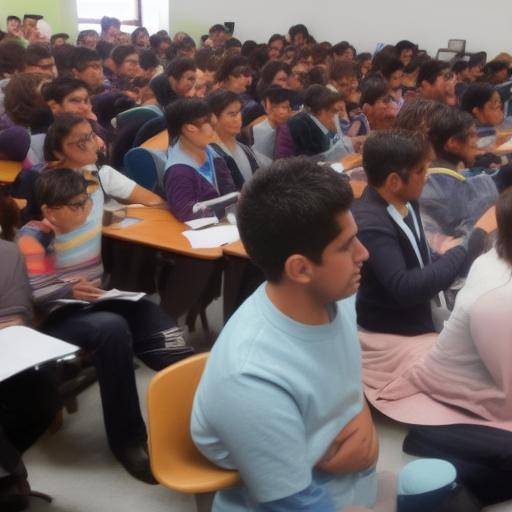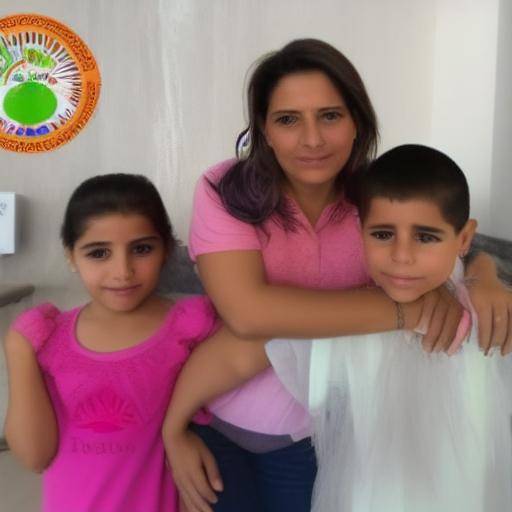
Education in family values is crucial in the development of children, influencing their behaviour and attitudes towards life. In this article, we will explore the importance of teaching family values, effective strategies to inculcate them and their long-term impact on the lives of children. From the history and evolution of family values to practical advice and future trends, this article will provide an integral vision that will enrich family life.
Introduction
The basis of a strong and healthy society lies in the values that are embedded in the family core. Teaching family values for children is essential for their emotional, social and ethical development. Children who acquire strong family values become adults with a stable emotional basis and a profound understanding of the importance of human relationships and empathy. In this article, we will explore effective strategies and practical examples to teach family values in a meaningful and lasting manner.
History and Background
Family values have deep roots in the history of humanity. From ancient civilizations to the modern world, the transmission of values in the family sphere has been fundamental to social cohesion and stability. In examining the history and evolution of these values, we can understand its continuing relevance in contemporary society.
The history of family values encompasses different cultures and religions, showing the diversity and universality of these principles. In analyzing the historical milestones and key figures that have influenced the formation of family values, we will be able to appreciate their impact on the development of societies over time. At present, the evolution of the family structure and social changes has also shaped the perception and transmission of these values.
Deep analysis
Family values play a vital role in the formation of the character and personality of children. By instilling values such as respect, responsibility and solidarity, parents and caregivers foster an environment conducive to the moral and ethical growth of children. Through statistics, concrete examples and case studies, we can understand the positive impact of family values on child development.
Moreover, it is crucial to address the challenges and obstacles that may arise in trying to convey family values. Factors such as the influence of the media, social pressure and generational differences can affect the effectiveness of teaching family values. This analysis will allow us to identify strategies to overcome these obstacles and strengthen the positive impact of family values on the lives of children.
Comprehensive review
The practical application of teaching family values to children is essential for their interiorization and assimilation. Through real cases and best practices, we will explore various ways of teaching family values, from behavioural modeling to the establishment of family routines and traditions. By comparing different approaches and methods, we can identify the most effective strategies to inculcate family values in the family environment.
By bringing together expert opinions and projecting the future of education in family values, we will gain a broad view of its continuing importance in modern society. We will also examine the long-term benefits of internalizing these values in adult life, and their contribution to the formation of ethical and responsible individuals in society.
Comparative analysis
The comparison of family values, the role of the family and the teaching process will allow us to better understand the complexities and synergies between these essential elements. By exploring the similarities, differences and complementarities of these concepts, we can identify the connection points that strengthen the effective transmission of family values to children.
Practical Tips and Accessible Tips
Effective implementation of strategies to teach family values requires a practical approach and concrete actions. From open communication to conflict resolution in a constructive manner, providing detailed advice and specific tactics will help parents and caregivers to strengthen the transmission of family values. Establishing clear limits, fostering empathy and modeling the desired behavior are just some of the strategies that can make the difference in child formation.
Perceptions of Industry and Expert Reviews
Collecting perceptions of experts and leaders in the field of education and psychology will give us an integral vision of the current challenges and opportunities in the teaching of family values. By analyzing industry trends and exploring future projections, we will be equipped with valuable knowledge to strengthen the transmission of family values in everyday life.
Case Studies and Real Life Applications
Real cases that illustrate the successful implementation of strategies to teach family values will provide concrete and applicable examples to various situations. In examining the results and lessons learned from these cases, we will be able to identify effective patterns and practices that will benefit families in their quest to transmit fundamental values to their children.
Future Trends and Predictions
The continuous impact of family values in contemporary society and emerging trends in family values education will give us a joint vision of the future of family values. In analyzing the predictions based on current data and the opinions of experts, we will be prepared to face the challenges and take advantage of the opportunities that arise in the evolving panorama of family values.
Conclusions
In short, teaching family values to children is a fundamental process that shapes their character, behavior and perspective of life. Effective transmission of family values not only strengthens family relationships, but also contributes to the formation of ethical and responsible individuals in society. By adopting practical strategies, taking advantage of expert perceptions and being aware of emerging trends, we can significantly enrich the experience of teaching family values.
Frequently asked questions
Why are family values important in the development of children?
Family values provide a solid basis for the emotional, social and ethical development of children. Instilling values such as respect, empathy and responsibility promotes healthy relationships and positive behaviors.
What are some practical examples to teach family values to children?
The practice of daily gratitude, the peaceful resolution of conflicts and the promotion of cooperation and fellowship among brothers are practical examples to teach family values to children.
How can parents overcome the challenges by trying to inculcate values in their children?
Open communication, modelling of desired behaviors and consistency in the application of values are key strategies to overcome challenges by teaching family values.
What is the role of the extended family in transmitting family values?
The extended family plays a significant role in providing support, positive examples and rooted traditions that enrich the transmission of family values to children.
How do family values evolve over time and generational changes?
Family values evolve to adapt to social and cultural changes, however, the importance of fundamental principles such as love, honesty and solidarity remains constant over time.
What impact do family values have on society in general?
Solid family values contribute to the formation of responsible and ethical citizens, strengthening the social fabric and promoting harmony and mutual respect in society.
In conclusion, teaching family values to children is an invaluable investment in their comprehensive development and their future contribution to society. In understanding the importance, implementing effective strategies and being aware of emerging trends, parents and caregivers can nurture strong family relationships and form ethical and responsible individuals that enrich society.
Final summary
In this extensive article, we have explored the importance of teaching family values to children, from their historical roots to their impact on modern society. Through in-depth analysis, practical advice, perceptions of experts and examples of real-life implementation, we have provided an integral vision that will enrich the understanding and practice of education in family values. By adopting effective strategies and being aware of emerging trends, we can strengthen the ethical foundations of future generations.
The power of family values to shape lives and societies is undeniable, and its effective transmission is a shared responsibility that enriches the social fabric and builds a positive future for all humanity!












